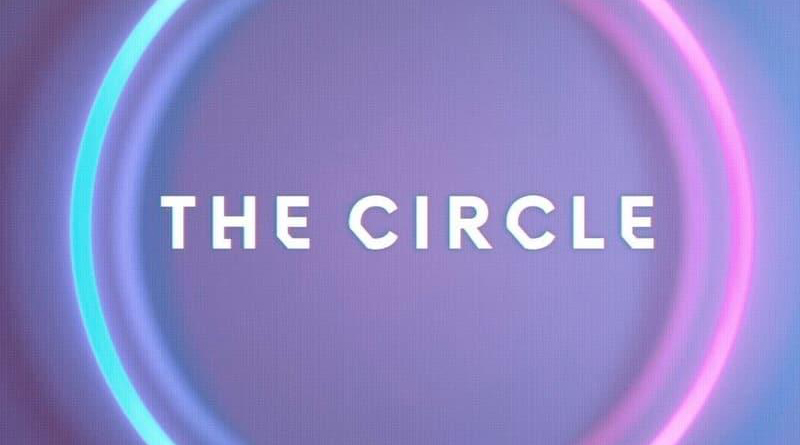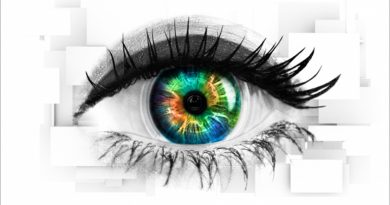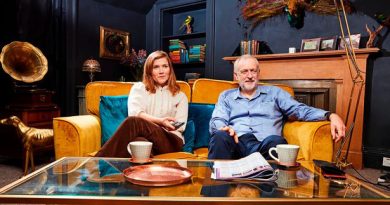The Circle closes in
Hot on the heels of the new series of Big Brother (and the announcement that Channel 5 is axing the series after its current run) comes Channel 4’s latest reality TV show,The Circle which began on Tuesday night.
On the face of it, what we have is another variation on the Big Brother formula: individuals originally unknown to each other are thrown together in a modern living space to compete in a popularity contest for up to £50,000. But, although the contestants are living in the same building, they are in fact in separate apartments alone. Interacting, as the programme’s publicity states,
“exclusively through a bespoke voice-activated social media platform called The Circle”.
That’s the unique selling point: traditional, not to say natural, modes of communication are impossible. Contestants do not physically meet and the only interaction allowed is through profiles created via a specially designed app. The Circle says, Channel 4, enables competitors to,
“chat, make friends, argue and maybe even fall in love. Building their own profiles, contestants will only get to know each other from what they choose to reveal via The Circle. They will be able to communicate as a group or individually, allowing cliques to form and private allegiances to be made.”
The producers are clearly hoping for all manner of dramatic eventualities as contestants seek to avoid being judged the least popular by their fellow housemates. Whomever garners the least amount of likes will be removed from the game over a period of three weeks.
It’s a fact that self-promotion is positively encouraged and that perception is more important than reality. As contestant Dan, 28, points out at the start of the show -social media is the way we want the world to see us. It’s not about how we really are. According to The Circle’s creative director, Tim Harcourt:
“It used to just be film-stars, rock-stars and narcissists who would do anything for the adulation of thousands of strangers. Now we’ve all caught the bug. So many of us do bizarre things or become very different versions of ourselves just to be ‘liked’ online. And whilst sometimes social media seems ridiculous and shallow, at other times it becomes a force for positive change. This series promises to explore all of this in a fashion that is dramatic, funny, warm and compelling.”
To which the only answer the last point is: well, maybe. Because if the first episode is anything to go by, the contestants (who appear to be collectively amazed by the fact they have been actually allowed indoors) are simply replicas of BB wannabees with a heightened sense of the power of social media and its importance in their lives. That’s to be expected of course, but there is nothing new on offer in the sense that the quality of repartee veers between the predictably sexually explicit and the profoundly mundane. The depressing shock at the end of episode one is that Alex, a male in reality who pretends to be a woman for the Circle, is voted the most popular person.
That is not to say that some of contestants are not charming, vivacious, good looking (of course) and self-aware. Because they are. It’s just that, as The Guardian’s Hannah J Davies has stated, after just one episode the ridiculousness of the consequences online interactions are laid bare.
And what does this say about the way in which society is heading? Are we to encourage and laud deceit as a way to financial reward? Already complaints have been made about the fact that Jennifer, 40, is posing as a 34 year old oncologist because she reckons being believed to be a doctor is the best route to success.
Comparisons with Charlie Brooker’s fictional dystopian TV series Black Mirror are just crying out to be made. In one particularly prescient episode of that drama, Nosedive, people’s lives are public property and everyone gets the chance to rate everyone else. A rating on a scale of one to five can hugely affect their standing in society. When the main character’s social media rating drops to zero, she is taken to prison.
Yet part of me is loath to take the Circle too seriously. The participants are, as I’ve said, self-aware and clearly much more in control of the situation than perhaps many of my demographic would care to admit.
And perhaps there’s the rub.
Could it be that those of us over say, 40, are simply too ignorant of the online lifestyles of those younger than us? Ignorant and unwilling to acknowledge that the nuances and complexities of this brave new world are better understood by those who have grown up knowing no different? After all, hasn’t every generation, throughout history, denigrated the capabilities of the one to follow? As George Orwell wrote,
“Every generation imagines itself to be more intelligent than the one that went before it, and wiser than the one that comes after it.”
In the end though, the Circle, like all commercial television is in the business of making money and attracting advertisers. Mobile phone network giffgaff is its official sponsor and Alice Tonge, Head of Channel 4’s Creative division has said:
“Social media is now embedded in everyday life and can be used to create the ultimate disguise, giving people the chance to be whoever they want to be. This idea sits at the heart of our campaign to create excitement and build up for the new series”
The circle is closing in.




